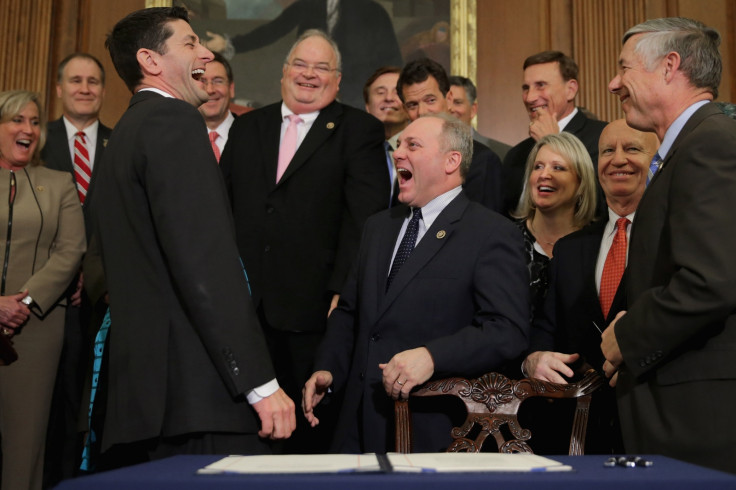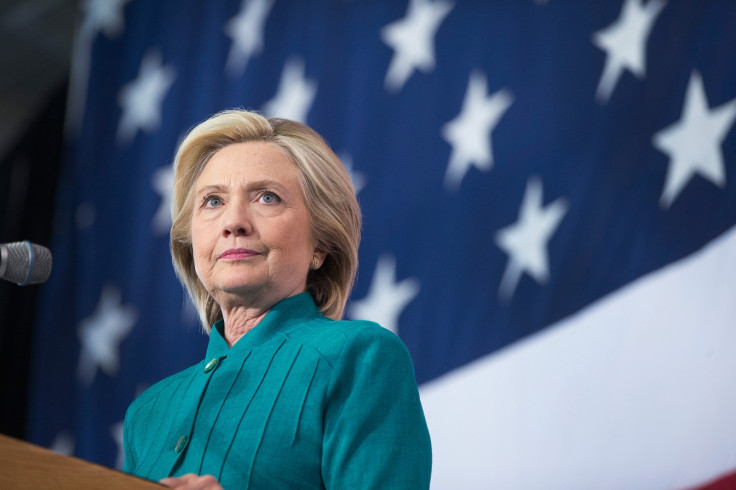Democrats urge Republican politicians to play nice after 'insidious' Russian hacking
Democratic House speaker Nancy Pelosi wants a 'united front' with Republicans.

Democratic House leader Nancy Pelosi has sent a strongly-worded letter to Republican Speaker Paul Ryan asking him to urge his party colleagues not to use hacked documents as political capital and insisting political opponents form a "united front" against cybercrime.
"Russia's cyberattack is an unprecedented assault on the sanctity of our democratic process," stated the letter, sent on 6 September. "We must come together to say that defending out democracy from Russia's meddling is more important than any advantage or disadvantage in this election."
The 2016 US House of Representatives election is currently scheduled for 8 November later this year – the same date as the presidential election. On a number of occasions, the campaign trail – mainly for the Democratic Party – has been overshadowed by a series of high-profile hacks and data breaches.
A number of cybersecurity firms believe that computer infiltrations at two groups – the Democratic National Committee (DNC) and the Democratic Congressional Campaign Committee (DCCC) – were the work of Russian intelligence. While the Obama administration has not pointed the finger at the Kremlin, accusations are mounting over nation-state involvement.
The Pelosi letter continues by stating that House Democrats, and the DCCC in particular, have been victim to a "large-scale and sophisticated" Russian cyberattack, branding the hacks as "Russia's insidious efforts to tamper with democratic elections."
The letter adds: "It is my hope that you will join me in opposing the NRCC or the DCCC from using any documents from Russian criminal cyberattacks in this campaign. Democrats and Republicans must present a united front in the face of Russia's attempts to tamper with the will of the American people."
Following the DNC hack, a mysterious figure called Guccifer 2.0 emerged and leaked emails, internal documents, financial records and personal phone numbers from the political party. The disclosures appeared to show a plot to undermine presidential candidate Bernie Sanders and eventually led to the resignation of the group's chairwomen, Debbie Wasserman Schultz.

Many US cybersecurity firms – including ThreatConnect and Crowdstrike – have placed blame for the data breaches at the feed of Russian operatives, likely sanctioned by the nation's president Vladimir Putin. The accusation has been consistently denied by Russian officials.
In a statement provided to Business Insider, a spokesperson for the National Republican Congressional Committee (NRCC) said it cannot control how its "individual expenditure unit" operates, citing one example where hacked content was used.
This incident involved an advertisment – funded by the NRCC's 'independent expenditure arm' – which used files leaked by Guccifer 2.0 to attack a Democratic candidate called Randy Perkins, who is running against Republican politician Patrick Murphy in Florida.
"The NRCC's chairman, Greg Walden, nor the speaker have control over what our independent expenditure unit does, which the DCCC chairman, Ben Ray Lujan, as well as Leader Pelosi are well aware of.," the statement said.
In combating the wave of criticism after the hacks, President Vladimir Putin has been forced to publicly deny involvement. "Does it even matter who hacked this data?" he told Bloomberg in an interview. "The important thing is the content that was given to the public [...] I don't know anything about it, and on a state level Russia has never done this."
© Copyright IBTimes 2025. All rights reserved.






















